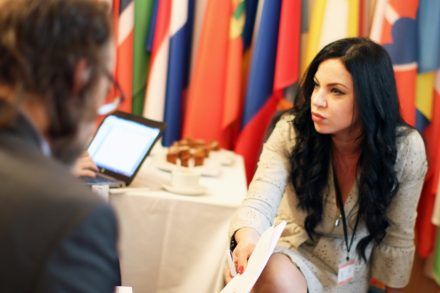OSCE/ODIHR meeting explores importance of independent detention monitoring to protect human rights while preventing violent extremism and radicalisation

The importance of independent detention monitoring bodies in assessing whether state measures to prevent and counter violent extremism and radicalisation that lead to terrorism (VERLT) in prisons are human-rights compliant was the focus of a workshop organised by the OSCE Office for Democratic Institutions and Human Rights (ODIHR), in partnership with Penal Reform International (PRI), on 4 and 5 December 2017 in Warsaw.
Some 27 practitioners from a range of professional backgrounds (12 men and 15 women), including representatives of international and regional organisations, NGOs, penitentiary institutions, detention monitoring bodies, and independent experts, shared challenges, experiences and lessons learned from their work.
‘Preventing and countering violent extremism and radicalisation to terrorism in the prison context presents a number of specific human rights challenges,’ said Omer Fisher, Head of ODIHR’s Human Rights Department. ‘To be effective in countering this phenomenon, states must ensure full respect of human rights in places of deprivation of liberty. The role of detention monitoring bodies in ensuring that the conditions of detention and treatment of prisoners comply with international human rights standards is, therefore, paramount to achieving this goal.’
Olivia Rope, Policy and Programme Manager for PRI, said: ‘In recent years, we have seen prison administrations put in place a range of measures to address violent extremism and radicalisation that lead to terrorism. This has had a variety of impacts including, for example, on classification and security regimes, which has led to severe restrictions for many people in prison, including their contact with the outside world. It is critical, therefore, for independent detention monitors to be equipped with the knowledge and tools necessary to scrutinise how these measures impact prisoners’ human rights.’
The outcomes of the event will feed into a joint ODIHR/PRI publication providing guidance for detention monitoring bodies, including national preventive mechanisms.
Image: Jorida Rustemi, Acting Head of the Albanian National Preventive Mechanism (NPM), the People’s Advocate (Ombudsman) Institution, at the meeting. Warsaw, 5 December 2017.
More information
Take a look at PRI’s Detention Monitoring Tool, which incorporates a number of resources to support monitoring bodies, including National Preventive Mechanisms (NPMs)